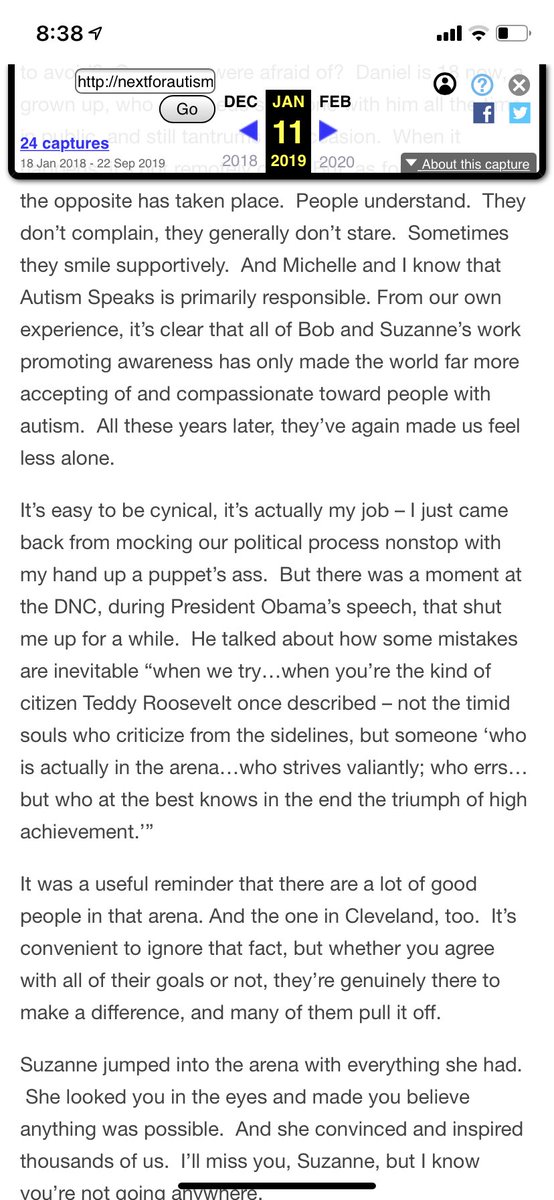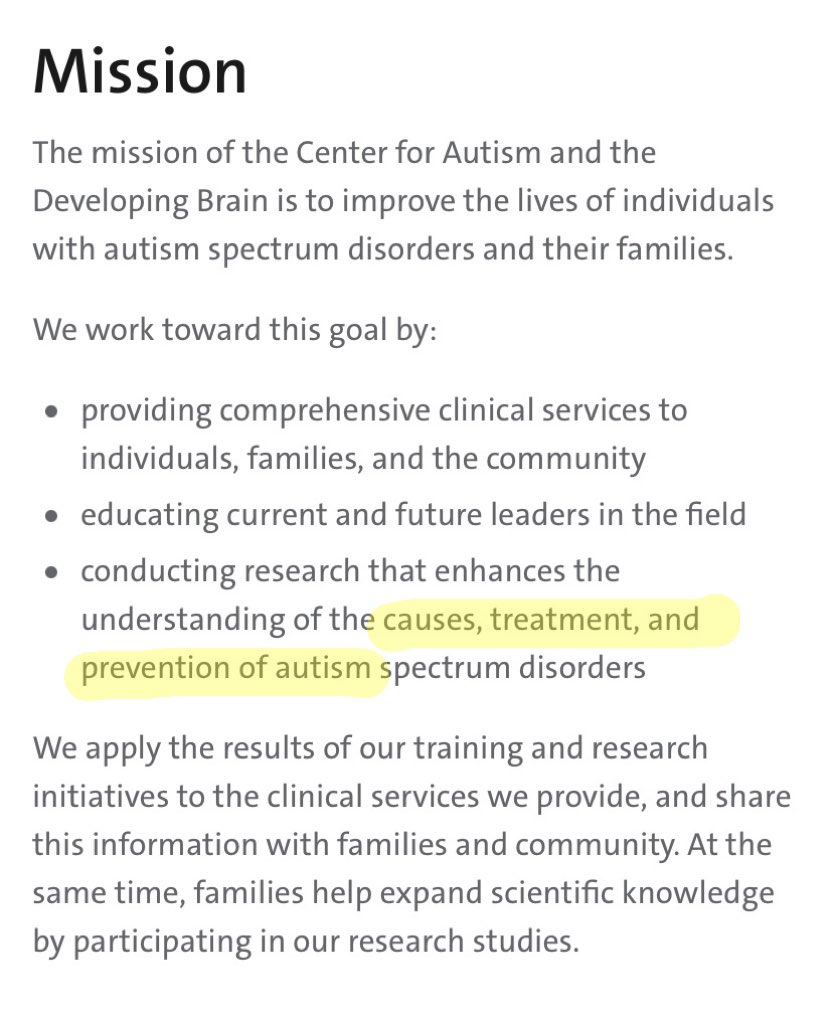
Next For Autism and their partner organization, the Center For Autism and the Developing Brain (CFADB), are currently engaged in a gaslighting campaign against the autistic community.
Both organizations have changed & erased things from their websites, without acknowledging it.
Both organizations have changed & erased things from their websites, without acknowledging it.
First, NEXT added “Statement of Purpose” and “FAQ” tabs to their About section.
I was surprised to see that they didn’t have an FAQ section at all before they faced backlash for their association with CFADB and promotion of ABA therapy.

I was surprised to see that they didn’t have an FAQ section at all before they faced backlash for their association with CFADB and promotion of ABA therapy.
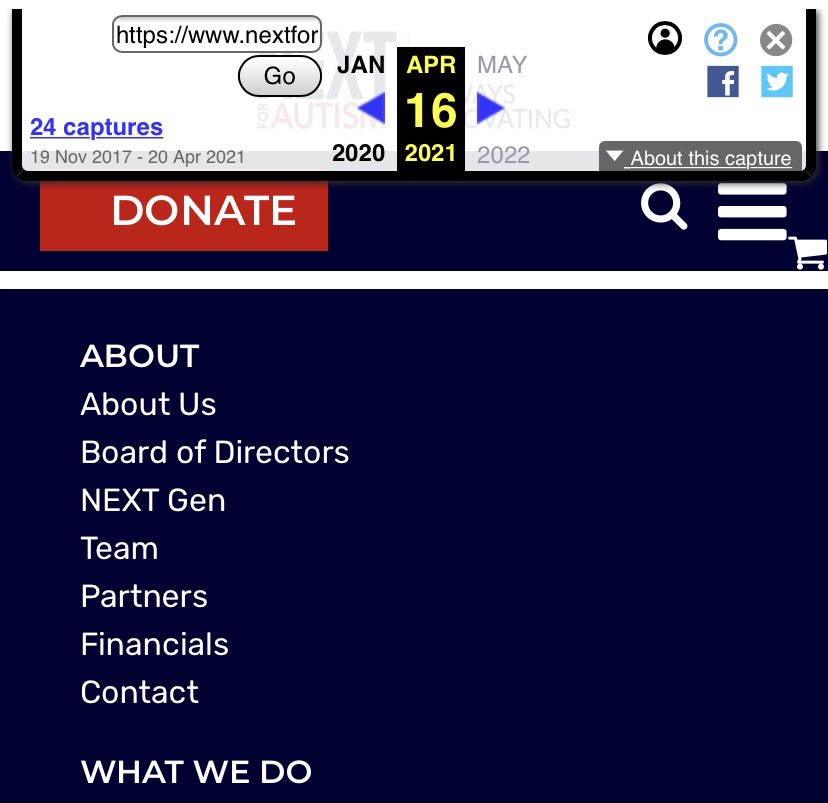
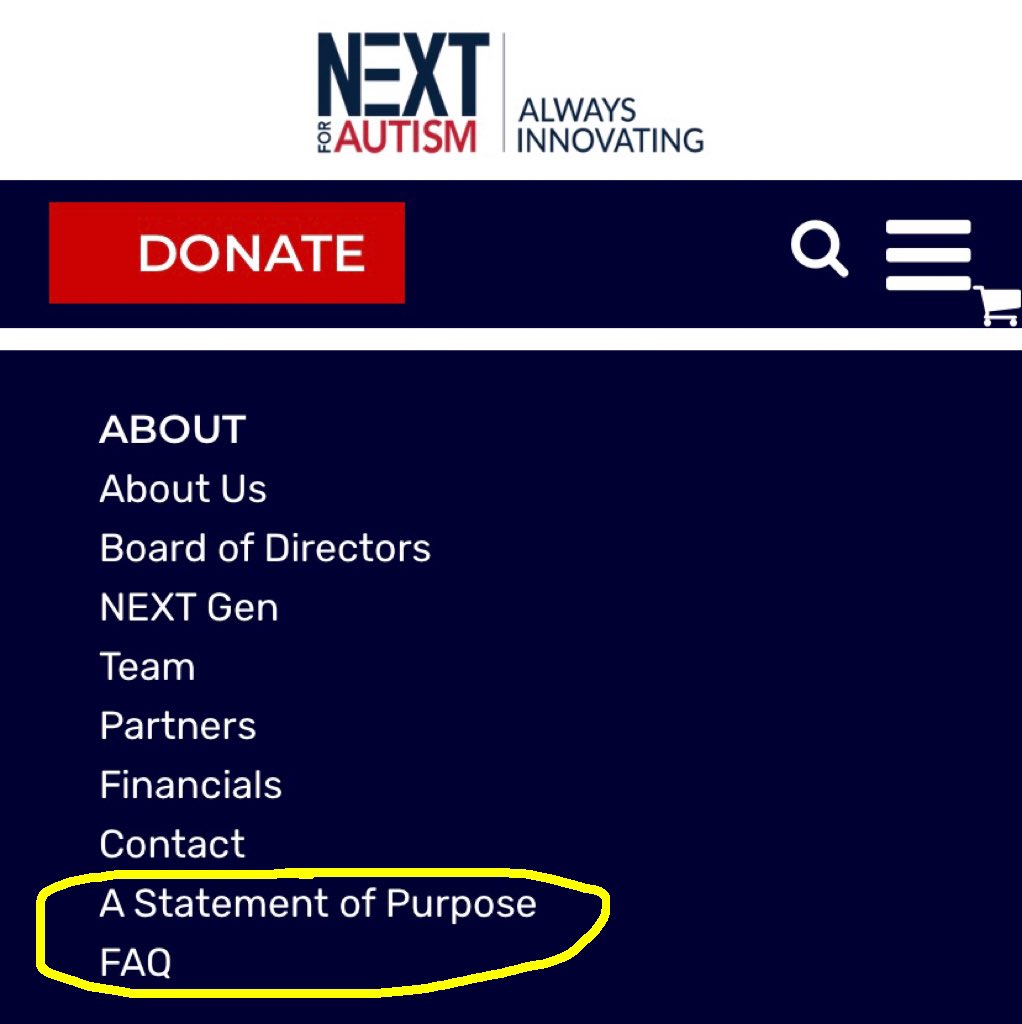
In the FAQ section (created as a PR front to deflect backlash, but never named as such) they say “[NEXT] provides no funding or support for research into the cause or cure of autism.”
At the time they wrote that, CFADB still had “causes, treatment, and prevention” on their site.
At the time they wrote that, CFADB still had “causes, treatment, and prevention” on their site.
So obviously, to maintain that image, CFADB’s site also had to change.
Here’s their mission statement on Apr. 19th: web.archive.org/web/2021041912…
Versus Apr. 20th: nyp.org/psychiatry/cen…

Here’s their mission statement on Apr. 19th: web.archive.org/web/2021041912…
Versus Apr. 20th: nyp.org/psychiatry/cen…
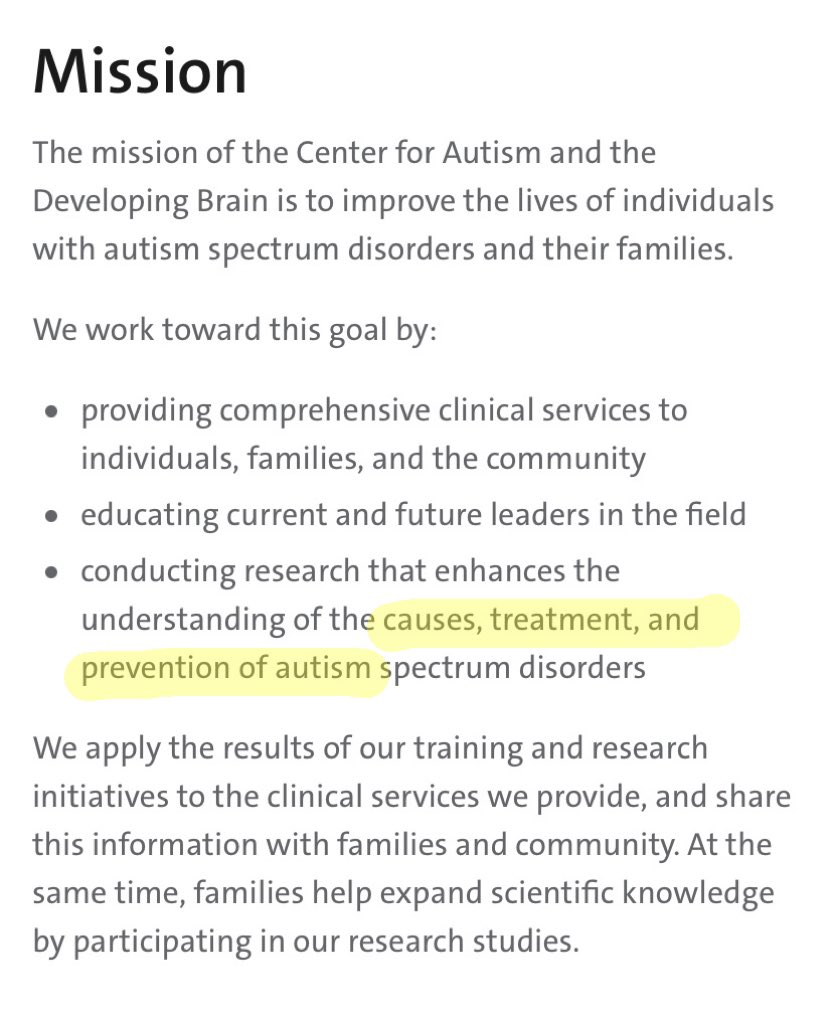
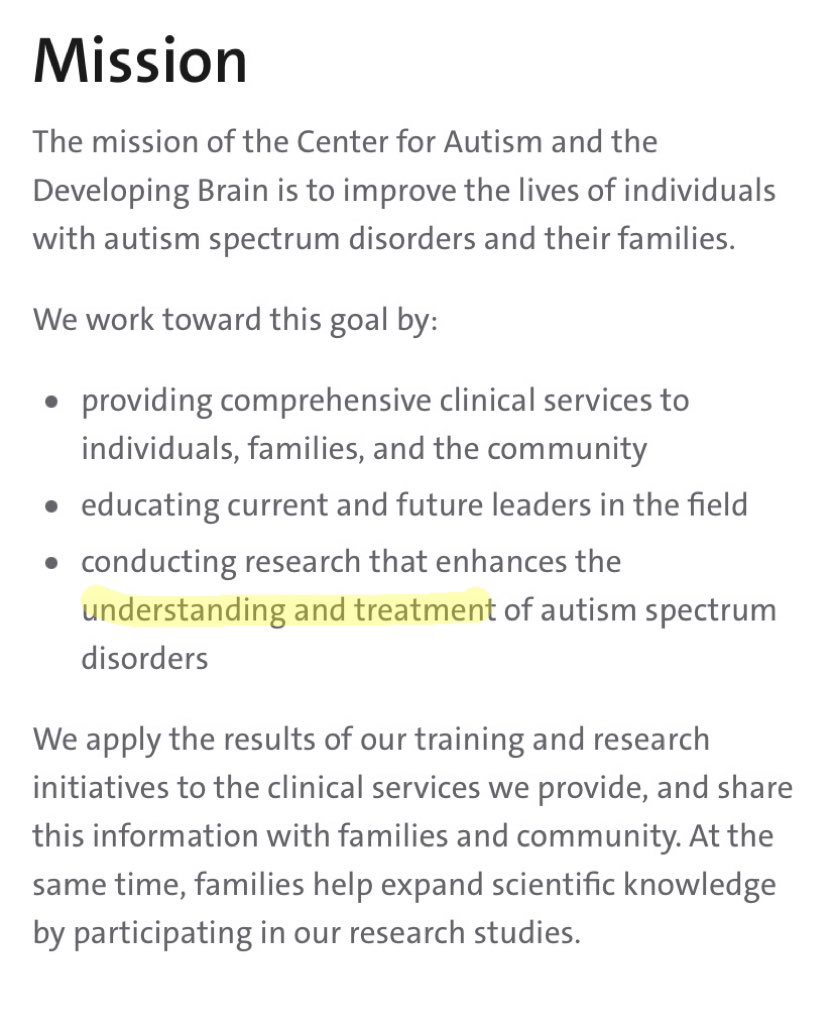
In addition to this, NEXT purged an article called “Remembering Suzanne Wright,” (of Autism Speaks) from their site, that was written by one of their founders.
Here’s the link to the article they tried to bury, via the Wayback Machine: web.archive.org/web/2020093001…
Here’s the link to the article they tried to bury, via the Wayback Machine: web.archive.org/web/2020093001…
I encourage you all to go read the full article, and then think critically about NEXT’s statement about Autism Speaks in their FAQ section.
It’s not just that they’ve partnered up in the past. Their founders were good friends, and both of them helped co-found the CFADB.
It’s not just that they’ve partnered up in the past. Their founders were good friends, and both of them helped co-found the CFADB.
In that same article, when talking about a “cure” for autism, Robert Smigel writes:
“There are parents of kids with autism who struggle to communicate, or have severe issues – like self-injurious behavior – who are entitled to wish for anything that could help their children.”
“There are parents of kids with autism who struggle to communicate, or have severe issues – like self-injurious behavior – who are entitled to wish for anything that could help their children.”
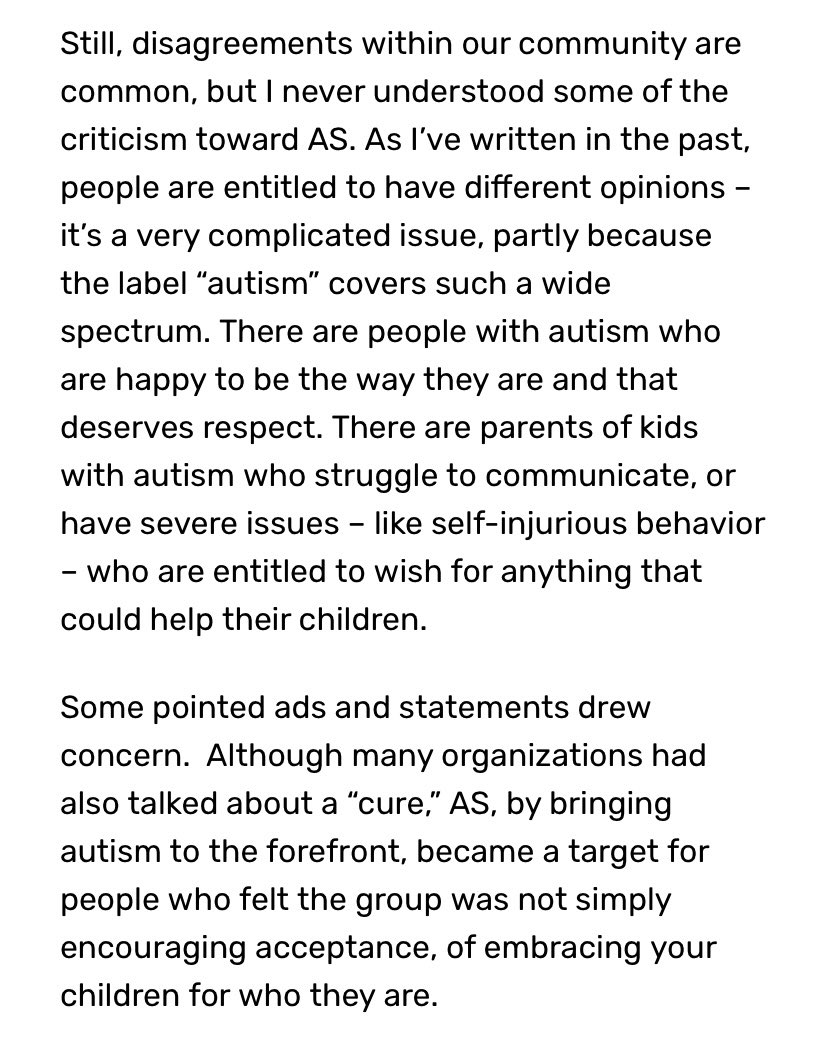
And when talking about the period of time in which a child starts displaying autistic traits, he writes:
“When it happens like that, to someone you cherish most in the world…acceptance isn’t the first thing on your mind.”
“When it happens like that, to someone you cherish most in the world…acceptance isn’t the first thing on your mind.”
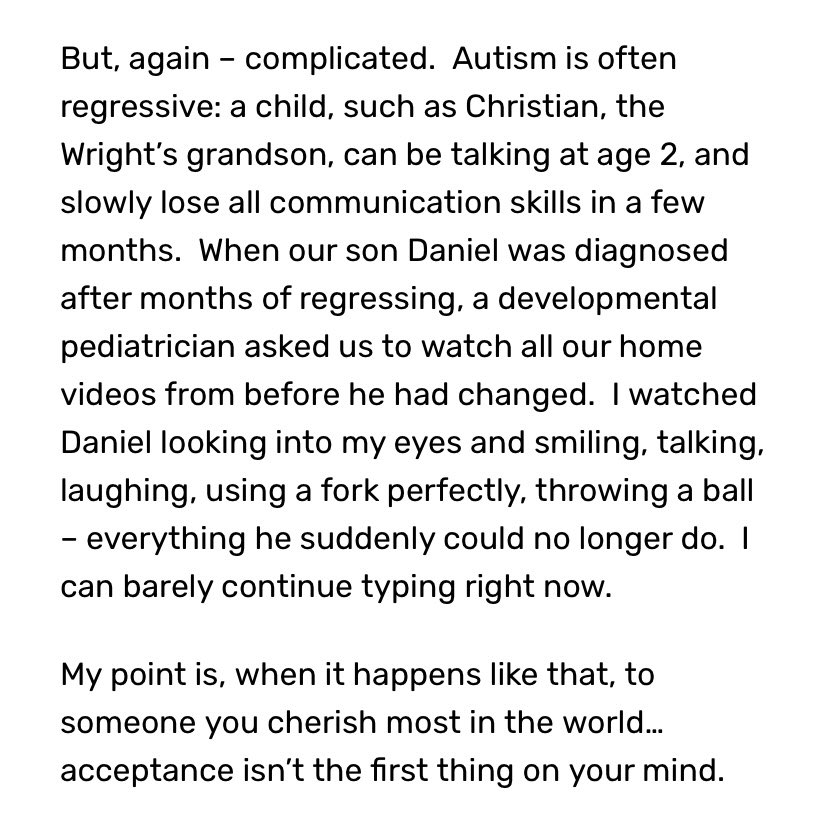
That’s not all of NEXT’s shady history, though.
Harry Slatkin, co-founder of NEXT, once publicly stated that he sometimes wished his autistic son would drown.
Harry Slatkin, co-founder of NEXT, once publicly stated that he sometimes wished his autistic son would drown.
https://twitter.com/Jovviial/status/1384157988303216640
Here’s the thing:
Changing words on your website doesn’t automatically change your actions, projects, and goals.
When an organization won’t even apologize, and instead tries to cover things up by deleting articles and editing their website, how can we trust them?
Changing words on your website doesn’t automatically change your actions, projects, and goals.
When an organization won’t even apologize, and instead tries to cover things up by deleting articles and editing their website, how can we trust them?
• • •
Missing some Tweet in this thread? You can try to
force a refresh







